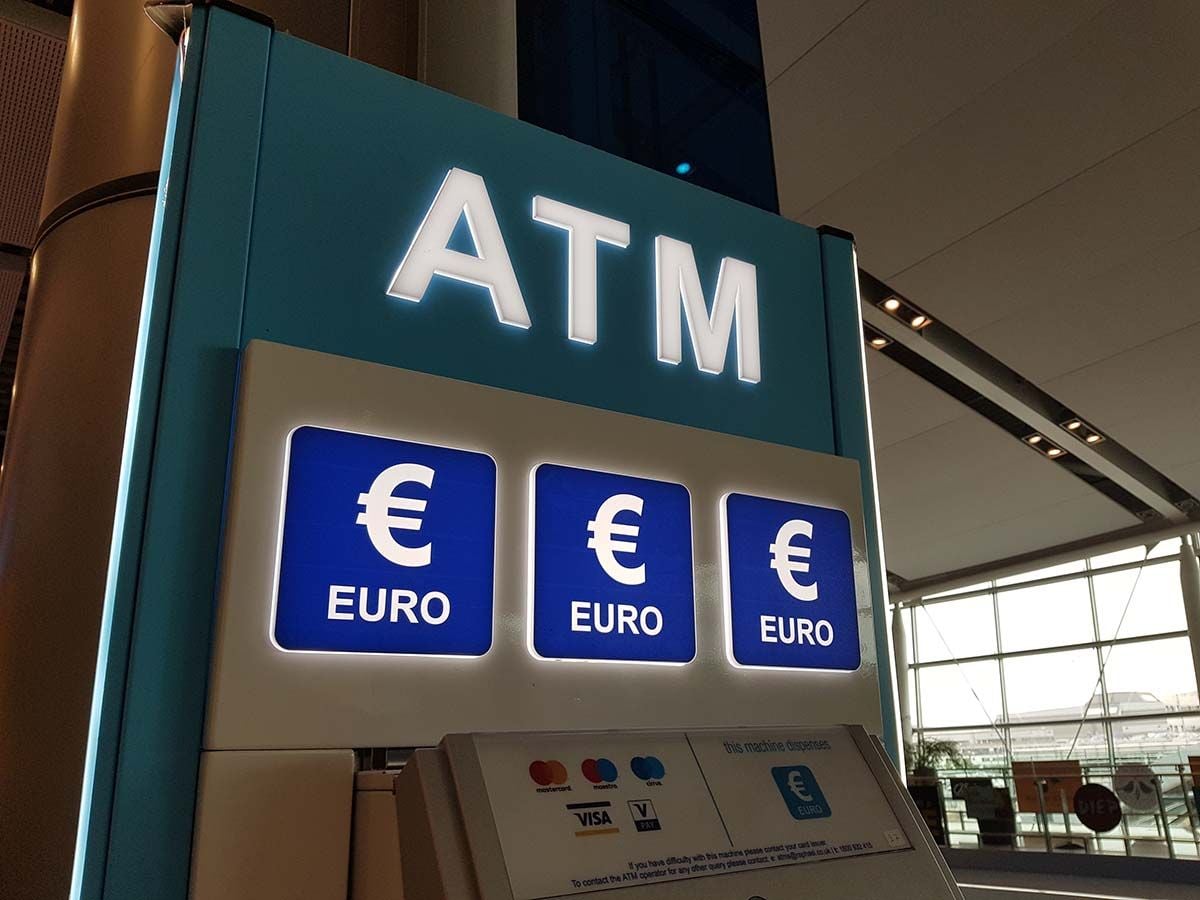Pound Sterling Hits 2020 Best Against Euro on Fears of Eurozone Economic Slowdown due to Coronavirus

Image © Pound Sterling Live
- Spot GBP/EUR: 1.1956, -0.05%
- Bank tranfer rates (indicative): 1.1639-1.1723
- FX specialist transfer rates (indicative): 1.1800-1.1850 >> More information
The Pound-to-Euro exchange rate is at 1.2035 on Wednesday, ensuring it is within touching distance of the 2020 high it reached on Tuesday at 1.2074.
Gains in the exchange rate come courtesy of a combination of Sterling strength following the release of some solid UK labour market statistics, see here, but the most significant driver appears to be an ongoing bout of weakness in the Euro linked to concerns the outlook for the Eurozone economy has deteriorated owing to China's coronavirus outbreak.
And amidst expectations for the UK economy to improve in the post election period, investors see a widening economic performance gap between the Eurozone and UK which should help the Pound outperform the Euro.
The Euro exchange rate complex came under sustained pressure on Tuesday following the release of data that showed the German economy continues to slow, leading one analyst to warn the country now risks becoming the "sick man of Europe.
Germany's ZEW index showed a sharp downturn in expectations with the economic sentiment component reading at 8.7, well below the 21.5 expected by markets, and the Current Conditions component reading at -15.7, which is well below the -10.3 markets had expected.
ING economist Carsten Brzeski says Germany is now in danger of becoming the "sick man of Europe" unless structural reforms and investment are undertaken.
"German manufacturing is in a severe slump; there are trade wars, less demand form China and Germany's auto industry is especially suffering from major structural issues," says Brzeski.
Image courtesy of Berenberg Bank.
"Investors are apparently still unwilling to put their trust in the Euro, which is hardly surprising given the poor macroeconomic data." says Marc-André Fongern, Head of FX Research at MAF Global Forex.
According to those who responded to the ZEW survey, the coronavirus outbreak will be particularly felt by Germany’s trade-dependent sectors, such as automobile and electronics.
"China is Germany’s second largest extra-EU trading partner and an integral part of global supply chains. We estimate that the corona effect will reduce German GDP growth by 0.1ppt in Q1," says Florian Hense, at Economist at Berenberg Bank.
Tuesday's ZEW survey comes just days after Destatis figures showed Germany's economy grinding to a halt in the final quarter of 2019, before markets had even a whiff of a coronavirus threat. And it was released on a morning when markets were in a risk-off mood as investors attempted to count the likely cost of the virus.
ZEW's survey asks 300 financial analysts for opinions on questions relating to the markets and economy. Both survey components had risen in recent months, indicating a less dour outlook in response to October's Brexit withdrawal agreement and the 'phase one deal' struck between the U.S. and China.
"This is the first clear sign of a hit from the coronavirus in the Eurozone sentiment data. The month-to-month drop in the expectations gauge was the biggest since the middle of last year, and this headline usually don’t swing by that much," says Claus Vistesen, chief Eurozone economist at Pantheon Macroeconomics. "Expect the headline investor sentiment surveys to dip further in the near term as major listed corporates start to count the cost of sharp slowdown in China’s economy in Q1. Apple’s warning on its Q1 earnings and unit supplies overnight is just one example, but it is representative, we think, of what comes next."
Analysts at Credit Suisse say they are expecting a 10 basis point interest rate cut at the European Central Bank (ECB) in the second quarter of 2020, as a response to the chronic economic underperformance in the Eurozone.
"Both direct (falling exports to Asia), and indirect (production affected by disrupted supply chains) effects will likely lead to a material fall in manufacturing surveys, such as the PMIs, in the months ahead, possibly of around 4-5 points. That’ll be especially true for Germany, which is highly exposed to both," says Neville Hill, Managing Director and Chief Economist Europe for the Investment Strategy and Research department at Credit Suisse in London.
Credit Suisse expects a small deposit rate cut of 10 basis points which would take the rate down to -0.6%. "The tone of the next ECB Governing Council meeting – in March – will likely be dovish, opening the door to a cut in April or June if the data are sufficiently weak," says Hill.
The general rule in foreign exchange circles is that when a central bank cuts interest rates, the currency it issues declines in value.
So with the ECB potentially cutting again, and the Bank of England looking intent to sit on the sidelines and keep interest rates unchanged owing to the UK's improving economy, the interest rate differential alone should prove supportive of the Pound-to-Euro exchange rate.
Foreign exchange analysts and economists are hinting that the trajectory of the Eurozone's economy will likely prompt calls for governments across the region to increase spending levels as it becomes obvious the European Central Bank has run out of firepower.
"A more expansionary fiscal policy on the part of European governments may well strengthen the currency in the long term. The ECB's ultra-loose monetary policy is obviously not the magic bullet, i.e. Christine Lagarde and Kristalina Georgieva can be expected to keep urging governments to consider fiscal stimulus. This may soon become the focus of attention, particularly in Germany," says MAF Global Forex's Fongern.
However, we know Germany is traditionally reluctant to spend generously, instead opting to remain fiscally prudent. The required shift in the German mindset required to deliver meaningful spending increases will be large and might ultimately prove disappointing.
The market will want to see a convincing boost to spending by Eurozone governments, particularly Germany, and we are yet to be convinced the political will exists.






